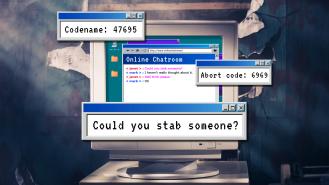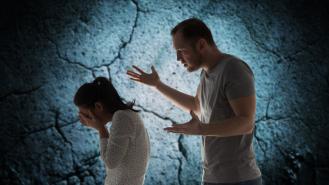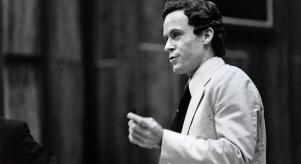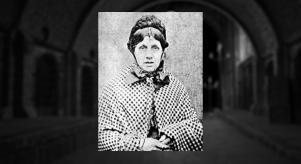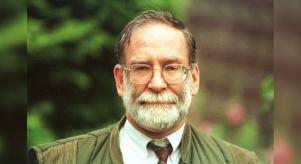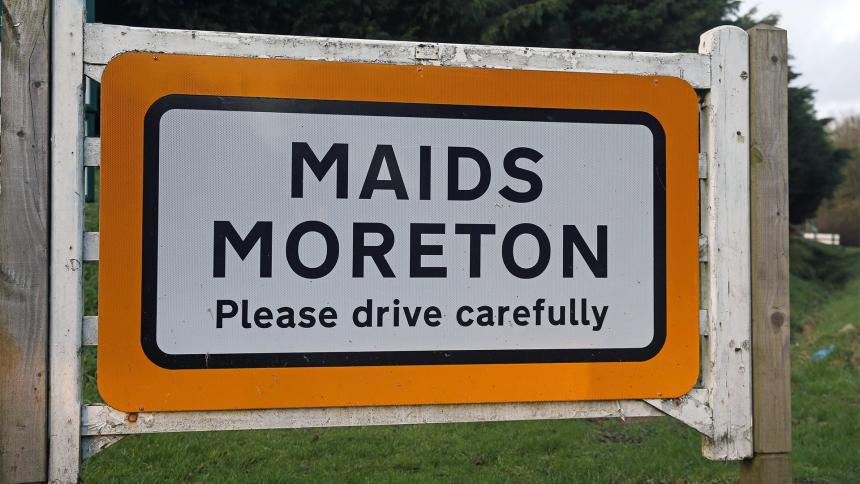
Mentally tortured and murdered in a gaslighting plot
The Sixth Commandment
Benjamin Field was an English undergraduate at the University of Buckingham when, in April 2011, aged 20, he met Peter Farquhar, then aged 61, a guest lecturer and novelist. In September 2013 Farquhar changed his will to benefit Field, a churchwarden at Farquhar’s place of worship, and a year later the pair undertook a betrothal ceremony at St. Mary’s Church in Hampstead.
In November 2014, Farquhar changed his will again leaving Field the freehold to his house, £15,000 and appointing him his literary agent. In less than a year, September 2015, Farquhar changed his will once again effectively handing half his home to Field.
A month later, Farquhar is admitted to hospital with a suspected overdose, Field tells his friends and family that Farquhar was struggling with alcoholism. He’d even publicly demonstrated this by drugging Farquhar before his book launch, a month before his death, causing the novelist appear to drunk and incapacitated.
Peter Farquhar’s third book, Wide Wide Sea was dedicated to Benjamin Field, the individual waging a meticulously planned-out campaign to convince Farquhar that he was losing his mind. Over a protracted period, he covertly plied his lover with gin, whisky, poteen, bioethanol, hallucinogen 2C-B lorazepam, flurazepam, plus others, to felicitate a strictly planned program of mental torture by means of ‘gaslighting’.
Field attempted to convince Farquhar he was going insane...
The word derives from a play, ‘Gas Light’ written by Patrick Hamilton in 1938 which made its debut at the Richmond Theatre, West London. The plot revolves around a murderous husband who is in the process of convincing his timid wife that she’s going insane: she hears strange noises, objects mysteriously appear and disappear and, notably, the gaslight keeps fluctuating in the parlour. But the perpetrator is Jack as he searches the house for the jewels of his murdered wife’s aunt; when he lights a lamp in one room, the gaslight dims in another.
As a phenomenon it’s nothing new, it exists in everyday, ordinary domesticity. At its most mundane it could be a white lie or a half-truth to conceal an aspect of reality, allowing one person to gain an advantage over the other(s). More seriously, it can be coercive or manipulative behaviour causing an intended target or victim to act against their will, even to the point of criminality. At its worst, it’s a means of wilfully controlling a person for physical and mental abuse, deviant gratification, financial gain or a combination of the three, as in the case Benjamin Field.
Field attempted to convince Farquhar he was going insane by moving or breaking objects around the home, deleting phone contacts and writing cryptic messages on mirrors. Meanwhile, Farquhar, like Field, was recording his demise in a diary, in which he wrote, 'I wanted to die… I saw awful packs of hideous black insects' and told friends that he felt like Shakespeare’s King Lear living through his mental breakdown. Field, on the other hand, would film his drugged-out lover for his amusement, he got a kick watching Farquhar suffer and encouraged him to act upon suicidal thoughts that Fields had fabricated.
Field’s campaign against Farquhar ended abruptly on 26th October 2016 when the former novelist, 69, was found dead on his sofa by his cleaner, complete with an upturned half bottle of scotch. The coroner recorded Farquhar’s death as acute alcohol intoxication, Field got his share of the will and he turned his devious attention to Farquhar’s neighbour, a retired school principal, 79-year-old Anne Moore-Martin.
Less than seven months after Farquhar’s death a besotted Moore-Martin gave Field £4,400 for a car and three months later, £27,000 toward a ‘kidney Dialysis machine’ for his younger brother, Tom.
Anne Moore-Martin was described as ‘lovestruck teenager’ by her sister-in-law Gillian Moore-Martin, 'She said she loved him. She said they would sit together on the sofa and he would put his arm around her and fluff his eyelashes down her cheek… It was as if she was hypnotised by him.' Like Farquhar, Moore-Martin was deeply religious, lonely and vulnerable, a perfect candidate for gaslighting: Field wrote messages on her mirror too, telling her to change her will (which Moore-Martin believed were from God) he bought her a hand counter to click every time she thought of him and he populated her house with hand-drawn flowers and photos of himself, one emblazoned with, ‘I am always with you’ underneath.
By December 2017 she’d changed her will, handing Field her entire estate, but things were about to unravel. February 2017, as Moore-Martin is recovering at home after a spell in hospital following an unexplained seizure, her niece, Anne-Marie Blake, contacts Thames Valley police accusing Ben Field of coercing her aunt into changing her will after learning about the messages on the mirror. Field was immediately barred from seeing Ms Moore-Martin and in April 2017, realising she’d been duped, cut Field out of her will. Anne Moore-Martin died humiliated and heartbroken two weeks later on 11th May.
Once the connection between Moore-Martin, Peter Farquhar and Field had been established police took the unusual step of exhuming the corpse of Farquhar and re-examining his body. Toxicological analysis showed Farquhar had been repeatedly exposed to lorazepam in the two months before he died, as well as other sedatives, and couldn’t rule out the possibility he’d been smothered with a cushion or pillow.
In court, Field admitted to deception and, alongside dairies, journals and photographs that detailed his campaign, seemed almost only too eager to confess to fraud and duplicity. But when questioned by the prosecution about a particular a notebook, discovered after his later arrest on suspicion of murdering Peter Farquhar, which told of the ‘story’ of a man called Ben suffocating an older man called Peter after giving him alcohol and sleeping tablets,
Field told the court he wrote the story as, 'a way of dealing with the awful way I treated Peter in 2015 and trying to come to terms with it.' When asked why he never destroyed the notebook, Field replied, 'I knew that I hadn't killed Peter and I thought it would be easy for them (the police) to find out. Because it's a story and it didn't happen. Having written it, it seems obvious it's a story. I know what happened, I didn't kill Peter and as I know what happened, no crime had been committed. I saw it for what it was - a story that never happened'.
This may seem like damning evidence, but it’s just as possible Field planted his notebook for the police to find, just as he planted a fake, back-dated diary for Moore-Martin to discover in which he described how he’d barely survive following her death, and if he had to abandon her home, he’d kill himself, effectivity forcing her to bequeath to him her home, which she did. Maybe the notebook would work too?
By being open and honest about chicanery, how unpleasant he’d been to Farquhar and Moore-Martin, the court and Jury wouldn’t question his sincerity regarding his claim that the murder story was simply a work of fiction. He’d lose the battle but win the war: go down for a few years for deception but spared a life-stretch for murder. The notebook also offers Field the chance to appear remorseful for harming Peter and, perhaps more cynically, attempts to lead the jury with reverse psychology by implying that the police (and therefore the jury) would be stupid to think the ‘obvious…story’ happened.
Field was, in effect, attempting to gaslight the Jury. If this was his plan, it failed. On the 9th of August 2019, Ben Field was convicted for the murder of Peter Farquhar, though acquitted of the murder of Anne Moore-Martin. Senior investigating officer Mark Glover, a retired detective chief inspector, said Field fitted the profile of a psychopath, 'Cruel, calculating, manipulative, deceitful. I don’t think evil is too strong a word for him.'

